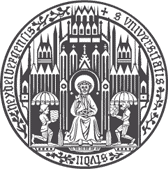
Deep Learning in Speech-to-Text Translation
Module Description
| Course | Module Abbreviation | Credit Points |
|---|---|---|
| BA-2010[100%|75%] | CS-CL | 6 LP |
| BA-2010[50%] | BS-CL | 6 LP |
| BA-2010[25%] | BS-AC | 4 LP |
| BA-2010 | AS-CL | 8 LP |
| Master | SS-CL, SS-TAC | 8 LP |
| Lecturer | Tsz Kin Lam |
| Module Type | |
| Language | English |
| First Session | 17.11.2020 |
| Time and Place | Tuesday, 16:15-17:45, Online (Heiconf) |
| Commitment Period | tbd. |
Prerequisite for Participation
Good knowledge of statistical machine learning (e.g., by successful completion of courses ”Statistical Methods for Computational Linguistics” and/or ”Neural Networks: Architectures and Applications for NLP”) and experience in experimental work (e.g., software project or seminar implementation project) and basic knowledge of Sequence-To-Sequence Learning.
Assessment
Content
Automatic Speech translation (AST) is the task of translating acoustic speech signals into text in a foreign language. Such systems have a large variety of applications: they are part of travel assistants, they provide simultaneous lecture translation, or they automatically generate subtitles for foreign movies or videos. In crisis response or developmental assistance, such systems can play a central role when foreign helpers need to communicate with locals. And, in the context of intercultural understanding, these systems allow us to have conversations with people we would otherwise never talk to because of the language barrier. AST thus is one of current biggest challenges and greatest promises in artificial intelligence.
This is a seminar about sequence-to-sequence learning for audio and text data with a focus on neural speech-to-text translation. Participants will learn about the current status of ST, especially the different aspects and challenges of conventional cascaded systems, i.e. Automatic Speech Recognition (ASR) combined with Machine Translation (MT) systems, and novel end-to-end speech translation systems that do not directly rely on ASR and MT components. In this seminar, we will discuss the rise of neural architectures in the field, but we will also take a closer look on recent advances in developing better data representations for the ST task.
Topics including (but not limited to)
Module Overview
Notes and updates
(1) Present two papers or 1 paper + 1 project (2) Heiconf link and Org. slides addedAgenda
| Date | Session | Materials |
| 17.11 | Org. + 1 tutorial | Org and slides by Stefan Riezler |
| 24.11 | ||
| 01.12 | ||
| 08.12 | ||
| 15.12 | ||
| 12.01 | ||
| 19.01 | ||
| 26.01 | ||
| 02.02 | ||
| 09.02 | ||
| 16.02 |


